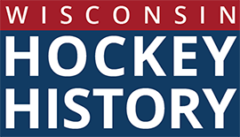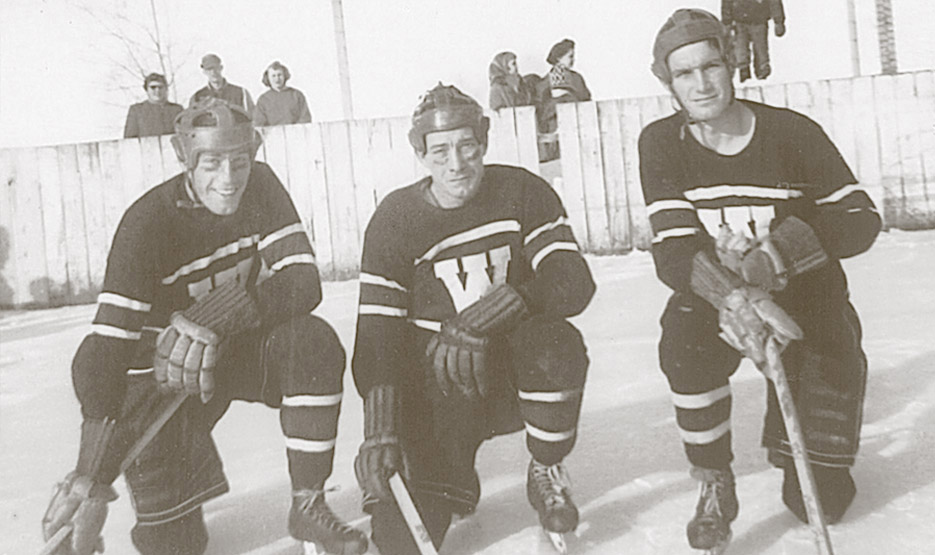This article, written by Randy Zarnke, appeared in the book Wausau Vets and the Early Days of Wausau Hockey that was published in 2015. Zarnke also wrote a book about the Fairbanks, Alaska hockey program entitled Fairbanks Hockey Pioneers, which is a tribute to those who developed that program.
A couple months ago, I was given the opportunity to go back to my hockey roots. I reconnected with two of my first hockey heroes.
I grew up in central Wisconsin in the 1950s. Most of the larger communities in that area had a hockey team consisting of men in their 20s and 30s. Most of those men had served in the military during World War II. As a result, the Wausau team was known as the “Vets,” but we referred to them simply as the “town team.” There was a league of sorts, but it was pretty informal compared to the way things are organized today. Financial support was marginal. Teams would form and disband based on the local economy.
The team in my hometown had several sets of brothers. My father was friends with many of these men, especially the Flory brothers (Neil, Turk, and George). All three were good skaters and stickhandlers. They didn’t start many fights, but they ended a few. It was widely known by other teams that you never fought one of the Flory boys. You might start with one, but the other two would join the fracas within seconds. Because they were my dad’s friends and because of their on-ice ability, the Flory brothers were my first hockey heroes. The “town team” disbanded in the 1960s when many of the players hit their mid-30s. I grew up, went to college, and moved to Fairbanks. I lost contact with the Flory brothers.
A high school classmate, Bruce Brennan, sent me a detailed story of an incident during one of the Wausau games back in the 1950s. That story prompted me to search for the brothers during a visit to my hometown in early 2013. With a little detective work, I was able to locate them. George and Turk are well into their eighties (Neil has passed away).* We met to reminisce about the “good old days.” Both brothers had successful careers and families; additional reasons I respected them, even in my youth. They had fond memories of their days playing hockey. I was inspired by their clear recollection of events. Over the next few days, I shared those stories with friends and relatives, who almost unanimously lamented that they had missed the session. I pledged to organize a similar gathering the next time I was in town so that others could enjoy the stories first-hand. George and Turk were eager to participate.
I was back in my hometown in October 2013. A group of nine guys ranging in age from 60 to 80 gathered to reminisce about the memorable people and places and events which made the 1950s era of Wisconsin hockey so special. The Flory brothers spun tales that kept the group hanging on every word. They laughed about the good times and groaned about the bad. They seemed genuinely gratified that we still recognized that significant stage in their lives. At the end of the evening, George commented, “I could talk about those days all night long.”
Those two recent sessions with my first hockey heroes have stuck with me longer than expected. I think about them often. I’m convinced that the success of the Flory brothers both on and off the ice was linked to the strong values they learned in their youth, the same values that their generation passed on to mine (hard work, respect, teamwork, etc.). It felt good to reconnect with my hockey roots. I’m confident that George and Turk would feel the same.
*George Flory passed away in November 2014.
Randy Zarnke grew up in Wausau and developed a love for hockey there. He has lived in Alaska for over thirty years, where he worked at the Department of Fish & Game before retiring. He became active in the Fairbanks hockey program and authored a book.

